is looking for Science Activities for students of elementary School? You're in the right place!
we of education and transformation, we selected several educational activities for 1, 2, 3, 4 and 5 year students to work in classroom or as a home chore.
Index
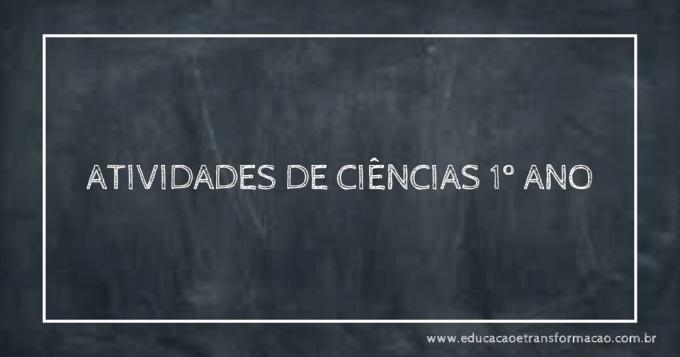
Suggestions of activities and exercises educational and diversified to copy and print:
To learn about the material for free, check the following link:
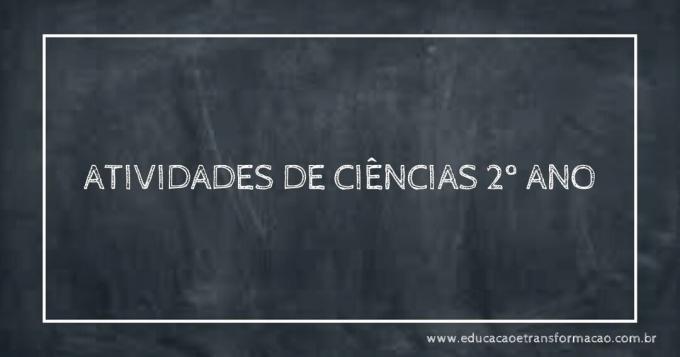
Lots of fun suggestions from activities from science to the 2 years to work inside and outside the classroom. Check out:
To learn about the material for free, check the following link:
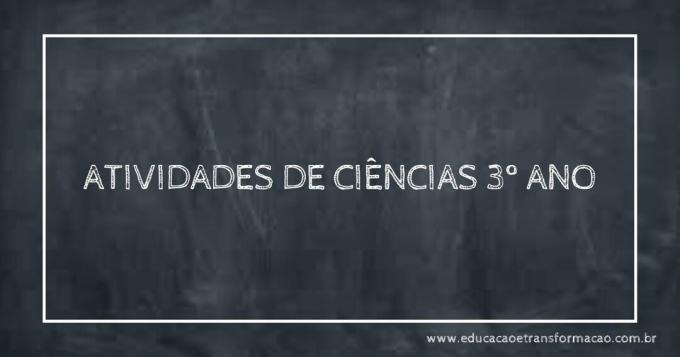
The best activities for students of 3 years, to work inside and outside the classroom. Check out:
To learn about the material for free, check the following link:
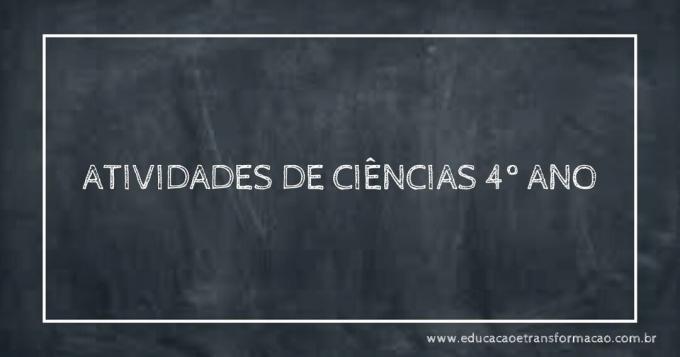
Lots of fun suggestions from educational science activities for the 4 yearto work in and out of classroom. Check out:
To learn about the material for free, check the following link:
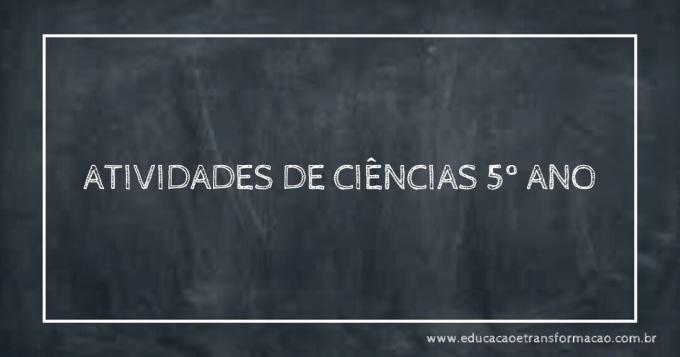
Check out our selection of activities several to work with your students from 5 year:
To learn about the material for free, check the following link:
The study of science for children will always have the importance of making them observe the world completely new, more complete and much richer, understanding every detail and being able to see concepts in practically everything.
It is not possible to guarantee that a child is more concerned with the preservation of the environment, if he is simply not able to understand the reasons explained by science for this concern.
By studying science, a child becomes more aware of the importance of actions that preserve the planet we live on, since he understands that everything is interconnected.
A major teaching problem is the student's lack of knowledge when passing Elementary School I. Another problem found in the classroom is the absence of the family, which educators do not know why the parents leave all responsibility for their children's education to the school's care, overloading the teacher. Another limiting factor in student performance is the practice of teaching in the classroom by the teacher.
The research emphasizes that the beginning of the action is at home, with the end at school. For the proposal to change education in the early grades to be successful, it is necessary that the family (father, mother, grandparents...) be allies of the educational institution, as well as the bodies of the Justice, Public Ministry, body that deals with children and adolescents, as a mediator/conciliator between school and family, as a mediator/conciliator guiding the parents of duty to educate and monitor the child's educational and pedagogical growth and their responsibilities as a father and mother to the educational institution, starting with the child's learning. within the family, in his family environment, in his home, where he learns the guiding principles of his intellectual and pedagogical training, with guidelines on how to behave, their hygiene, their clothing, their education when addressing the other person, respect, understanding, dignity, finally, no institution under normal conditions can replace the family.
Therefore, the family environment is the guiding principle of all children's learning, and one of them is to learn what science is, the beginning of everything, for this it is necessary to talk a lot about science in the family, because science moves everything in focus, in thinking, acting, speaking, everyday use, eating, dressing, for example: toothpaste, toothbrush, water, teeth, mouth, food, growth, birth and clothing, only in this way will the child be scientifically literate at home, taking this learning to the classroom. class.
When the school has contact with science, it actively participates in the class, and the outcome in the school is happening, otherwise, the classroom will be a meeting point for students to play and remain oblivious to the themes of the teaching-classes, leading the teacher to spend precious time in the class to control the student's dynamics, which becomes uncontrollable. In view of this fact, the teacher is bewildered, emotionally out of control and when he returns to his normal state, there has already been a change in the pace of the class. As the fact is quite common, the educator becomes physically exhausted. At the end of each day, each hour, what does the teacher think? He knows that his mission must continue in order to positively fulfill this harmonious relationship in teaching-learning.
The research was carried out in the Bailique archipelago, at the Filadélfia State School and at the Igarapé Grande da Terra Grande State School.
Adelson Nunes Coelho – Professor Articulista
Subscribe to our email list and receive interesting information and updates in your email inbox
Thanks for signing up.